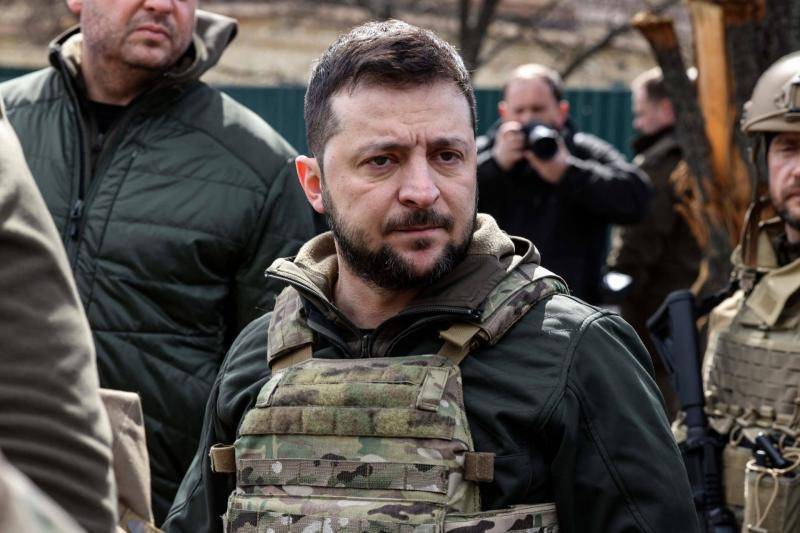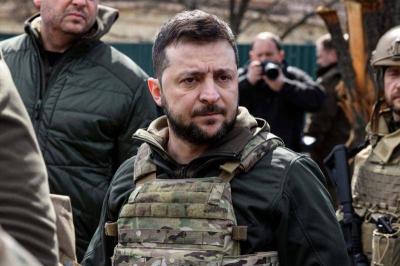Ukrainian President Volodymyr Zelensky expressed concerns that the ground offensive initiated by Russia on May 10 in the Kharkiv region might merely be a precursor to a larger attack in the north and east. Russian forces, which have made slight gains in recent months on Ukrainian territory, launched a surprise assault on the Ukrainian Kharkiv area, achieving their largest gains in 18 months.
In his first interview with a foreign media outlet since Moscow began its offensive in Kharkiv, Zelensky stated that Russian forces had advanced between five to ten kilometers along the northeastern border before being halted by Ukrainian troops. He noted, "We stopped them. I wouldn't say it’s a major Russian success, but we must acknowledge that they are intruding into our land, not the other way around."
Pointing out that the situation has not yet "stabilized," he said, "Nevertheless, the situation is under control and better than on the first day" of the attack, thanks to the deployed reinforcements. Moscow had previously controlled vast areas of this region during the early stages of the Russian military operation in Ukraine before they were retaken by Kyiv.
Russian President Vladimir Putin confirmed on Friday that the aim of the new offensive is to create a "buffer zone" against Ukrainian attacks on Russian territory, emphasizing that his forces do not intend to invade the city of Kharkiv.
In a separate context, Moscow accused Kyiv on Saturday of attacking it with French-manufactured "Hammer" guided bombs and American-made "HARM" anti-radar missiles in the Belgorod region of Russia near the Ukrainian border. The Russian Defense Ministry stated, "An attempt by the Kyiv regime to carry out terrorist attacks using French-made Hammer bombs and American-made HARM anti-radar missiles against targets on Russian territory was thwarted."
It clarified that between 9:20 and 9:30 AM GMT on Saturday, "Russian air defense systems destroyed four guided bombs and two anti-radar missiles over the Belgorod region."
Zelensky acknowledged that there is a shortage of Ukrainian troops, affecting the morale of soldiers, while a new mobilization law is set to take effect on Saturday to bolster the military. He remarked, "We need to fill the reserves; there are a large number of empty battalions."
With no end to the war in sight, the Ukrainian army is struggling with recruitment as soldiers feel overworked and frustrated due to the lack of rotation. Many Ukrainian soldiers have been fighting for over two years without the possibility of relief. In April, Zelensky signed a controversial law that will take effect on Saturday, lowering the mobilization age from 27 to 25, thereby increasing the number of eligible men for combat.




